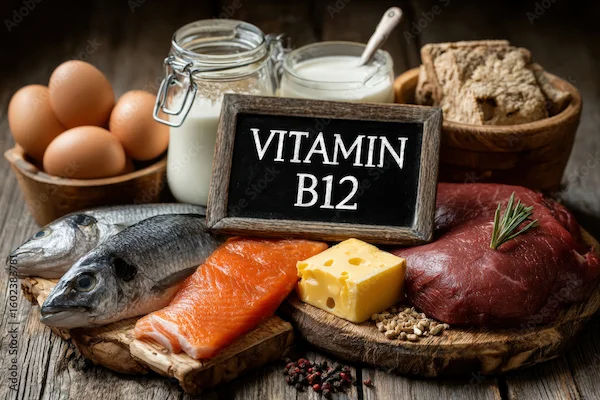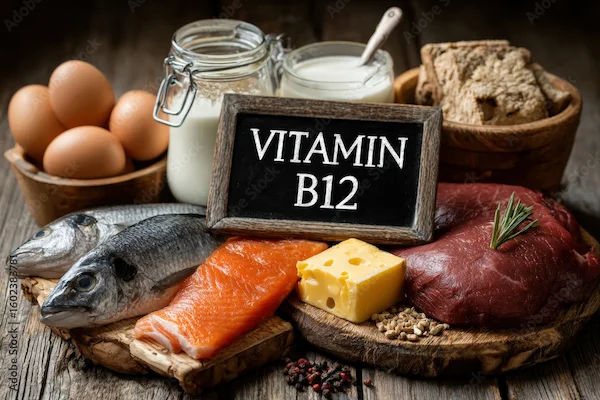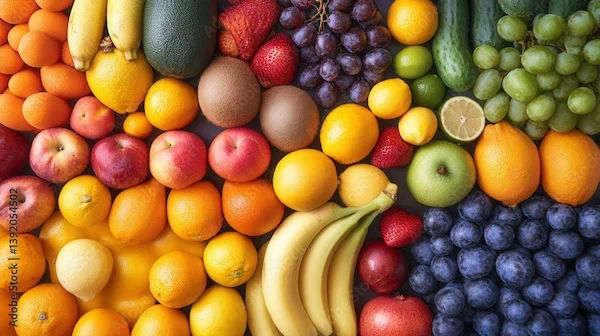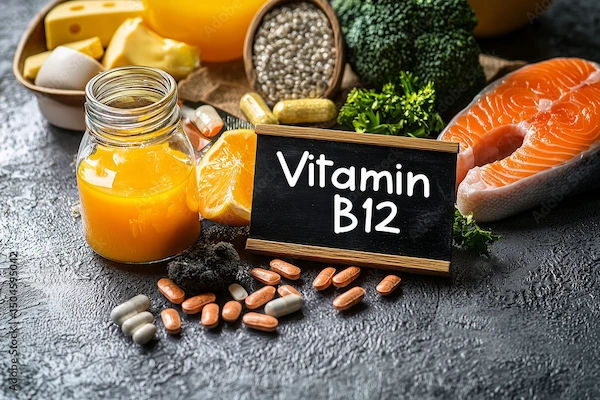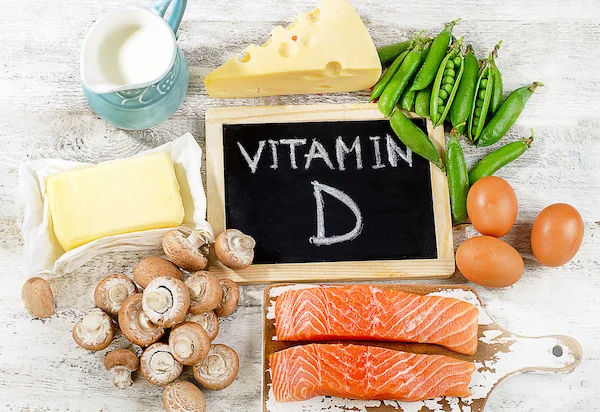Vitamin D Food Sources and Benefits
Discover the best food sources of Vitamin D, from fatty fish to fortified milk. Learn how this essential vitamin benefits bone health, immunity, and overall well-being, and find out which foods to add to your diet to fight a deficiency.

Written by Dr. J T Hema Pratima
Reviewed by Dr. Shaik Abdul Kalam MD (Physician)
Last updated on 10th Aug, 2025

Introduction
Vitamin D is often called the "sunshine vitamin" because our bodies produce it when exposed to sunlight. However, many people don’t get enough of this essential nutrient, leading to deficiencies that can affect overall health. In this article, we’ll explore the best food sources of vitamin D, its benefits, and simple ways to ensure you get enough of it.
Why is Vitamin D Important?
Vitamin D plays a crucial role in keeping our bodies healthy. Here’s why it matters:
1. Strong Bones & Teeth – Vitamin D helps your body absorb calcium, which is essential for bone strength and preventing conditions like osteoporosis (weak bones).
2. Boosts Immunity – It strengthens your immune system, helping you fight infections like colds and flu.
3. Supports Muscle Function – Adequate vitamin D levels help maintain muscle strength and reduce the risk of falls, especially in older adults.
4. Mood Regulation – Low vitamin D levels have been linked to mood disorders like depression and seasonal affective disorder (SAD).
5. Heart Health – Some studies suggest that vitamin D may help regulate blood pressure and reduce the risk of heart disease.
Signs of Vitamin D Deficiency
Many people don’t realize they lack enough vitamin D. Common symptoms include:
Fatigue and tiredness
Bone or back pain
Frequent infections
Slow wound healing
Hair loss
Muscle weakness
Mood swings or depression
If you experience these symptoms, it’s a good idea to check your vitamin D levels with a simple blood test.
Best Food Sources of Vitamin D
Since sunlight isn’t always enough (especially in winters or for people with limited sun exposure), adding vitamin D-rich foods to your diet is important. Here are some great options:
1. Fatty Fish
Salmon – One of the best sources; wildcaught salmon has more vitamin D than farmed.
Mackerel & Sardines – Small, oily fish packed with vitamin D.
Tuna – Canned light tuna is a convenient option.
2. Egg Yolks
Egg yolks contain small amounts of vitamin D. Choose free range or fortified eggs for higher levels.
3. Fortified Foods
Many foods are enriched with vitamin D, including:
Milk (cow’s milk and plantbased alternatives like soy or almond milk)
Orange juice
Breakfast cereals
Yogurt & cheese
4. Mushrooms
Some mushrooms (especially those exposed to UV light) naturally produce vitamin D. Look for varieties like shiitake or maitake.
5. Cod Liver Oil
A traditional supplement rich in vitamin D and omega-3 fatty acids.
Consult Top Specialists for Personalised Tips
How Much Vitamin D Do You Need?
The recommended daily intake varies by age:
Infants (0-12 months): 400 IU
Children & Adults (1-70 years): 600 IU
Seniors (70+ years): 800 IU
People with darker skin, limited sun exposure, or certain medical conditions may need higher doses.
Tips to Improve Vitamin D Levels
Tips to improve vitamin D levels:
1. Get Safe Sun Exposure – Spend 1015 minutes in the sun (without sunscreen) a few times a week.
2. Eat Vitamin DRich Foods – Include fish, eggs, and fortified dairy in your diet.
3. Consider Supplements – If you’re deficient, your doctor may recommend vitamin D3 supplements.
4. Check Levels Regularly – A simple blood test can help monitor your vitamin D status.
When to See a Doctor?
If you suspect a deficiency or experience symptoms like constant fatigue, bone pain, or frequent illnesses, consult a doctor. They may recommend a blood test and supplements if needed.
Book a Vitamin D Test with Apollo 24|7
Worried about your vitamin D levels? You can easily book a vitamin D test or consult a nutritionist through Apollo 24|7. Early detection and simple dietary changes can help you stay healthy and active!
Final Thoughts
Vitamin D is essential for strong bones, immunity, and overall well being. By eating the right foods, getting some sunlight, and monitoring your levels, you can maintain good health effortlessly. If you’re unsure about your vitamin D status, a quick test can give you clarity and help you take the right steps toward better health.
Stay healthy, stay strong!
Consult Top Specialists
Consult Top Specialists for Personalised Tips

Dr. Debashis Nayak
Endocrinologist
8 Years • MBBS, DNB (Internal Medicine), PG Diploma ( Diabetes & Endocrinology )
Rourkela
Apollo Hospitals, Rourkela, Rourkela

Dr. Pramodh Krishnamurthy
General Physician/ Internal Medicine Specialist
19 Years • MBBS
Bengaluru
Apollo Clinic, Sarjapur Road, Bengaluru

Dr. Mijanur Rahaman Mondal
General Practitioner
3 Years • MBBS
Kolkata
Dr Utsa Basu Clinic, Kolkata
(25+ Patients)

Dr. Swagato Podder
General Practitioner
5 Years • MBBS
Kolkata
GRD POLYCLINIC, Kolkata
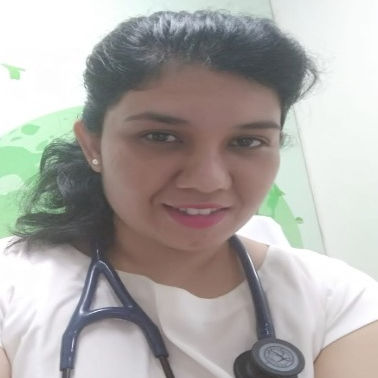
Dr. Impana G N
Physician/ Internal Medicine/ Covid Consult
11 Years • MBBS,DNB FAMILY MEDICINE, MNAMS ,CCEBDM
Mysuru
Apollo BGS Hospital Adichuchanagiri Road, Mysuru
Consult Top Specialists

Dr. Debashis Nayak
Endocrinologist
8 Years • MBBS, DNB (Internal Medicine), PG Diploma ( Diabetes & Endocrinology )
Rourkela
Apollo Hospitals, Rourkela, Rourkela

Dr. Pramodh Krishnamurthy
General Physician/ Internal Medicine Specialist
19 Years • MBBS
Bengaluru
Apollo Clinic, Sarjapur Road, Bengaluru

Dr. Mijanur Rahaman Mondal
General Practitioner
3 Years • MBBS
Kolkata
Dr Utsa Basu Clinic, Kolkata
(25+ Patients)

Dr. Swagato Podder
General Practitioner
5 Years • MBBS
Kolkata
GRD POLYCLINIC, Kolkata

Dr. Impana G N
Physician/ Internal Medicine/ Covid Consult
11 Years • MBBS,DNB FAMILY MEDICINE, MNAMS ,CCEBDM
Mysuru
Apollo BGS Hospital Adichuchanagiri Road, Mysuru
